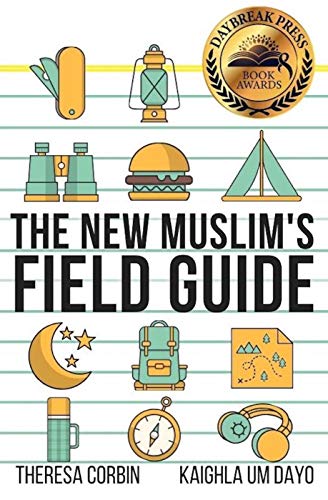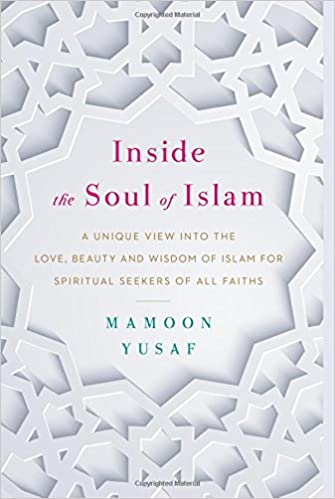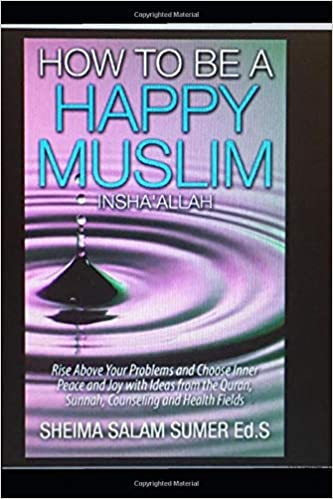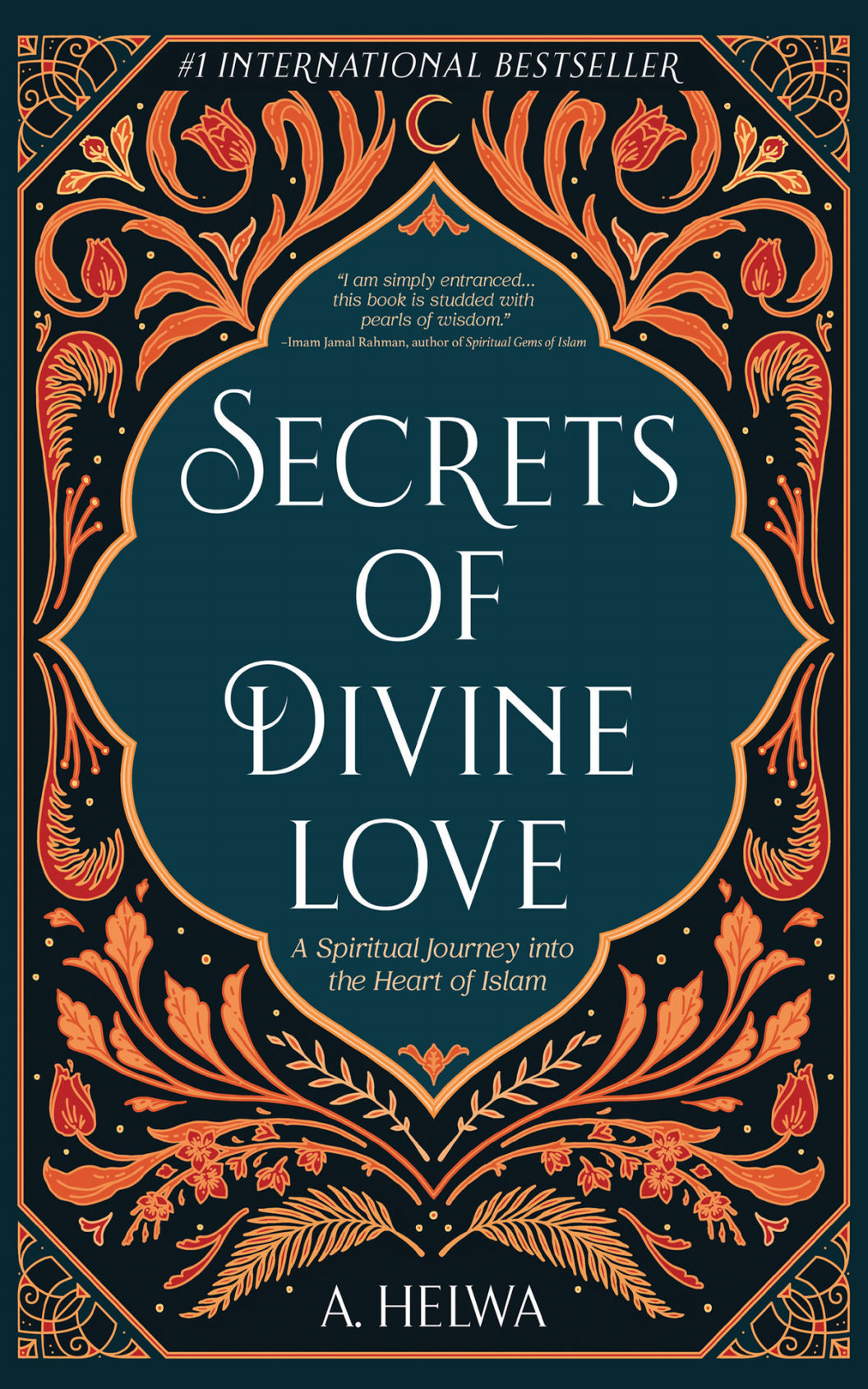
Hadith of Gabriel (Salam be upon him) with Commentary
© Nuh Ha Mim Keller, 1991
From Reliance of the Traveller
https://untoislam.com/book/reliance-traveller-classic-islamic-al-salik
Umar ibn Khattab (Allah be well pleased with him) said:
As we sat one day with the Messenger of Allah ﷺ, a man with pure white clothing and jet black hair came to us, without a trace of travelling upon him, though none of us knew him.
He sat down before the Prophet ﷺ bracing his knees against his, and resting his hands on his legs, said:
'Muhammad, tell me about Islam.'
The Messenger of Allah ﷺ said:
'Islam is to testify there is no god but Allah and that Muhammad is the Messenger of Allah, and to perform the prayer, give zakat, fast in Ramadan, and perform the pilgrimage to the House if you can find a way.'
He said:
'You have spoken the truth,' and we were surprised that he should ask and then confirm the answer.
Then he said:
'Tell me about true faith (iman), ' and the Prophet ﷺ answered:
'It is to believe in Allah, His angels, His inspired Books, His messengers, the Last Day, and in destiny, its good and evil."
You have spoken the truth,' he said:
'Now tell me about the perfection of faith (ihsan), ' and the Prophet ﷺ answered:
'It is to adore Allah as if you see Him, and if you see Him not, He nevertheless sees you.'
'Tell me of the Hour,' said the visitor, and he was told:
'The one questioned knows no more about it than the questioner.'
'Then tell me of its portents,'he said, and the Prophet ﷺ replied:
'That the slave woman shall give birth to her mistress, and that you shall see barefoot, naked, penniless shepherds vying in constructing high buildings.'
Then the visitor left.
I waited a while, and the Prophet ﷺ said to me:
'Do you know, 'Umar, who was the questioned?'
And I replied, 'Allah and His messenger know best.'
He said:
'It was Gabriel, who came to you to teach you your religion'
Sahih Muslim (y-92), 1.37-38.
ISLAM
'Islam is to testify there is no god but Allah and that Muhammad is the Messenger of Allah, and to perform the prayer, give zakat, fast in Ramadan, and perform the pilgrimage to the House if you can find a way."
(Nawawi:) The sheikh and Imam Ibn Salah (Allah have mercy on him) said:
"Being a Muslim is outwardly established by one's saying the two Testifications of Faith (Shahadatayn) (N: even if they are not spoken in Arabic).
The Prophet ﷺ only added the prayer, zakat, the pilgrimage, and the fast because they are the most patent and greatest of Islamic observances.
One's submission (istislam) is perfected through performing them, and neglecting them suggests that one has dissolved or vitiated the terms of one's compliance.
Moreover the term faith (iman) encompasses all of the things by which Islam is explained in this hadith, and indeed, all acts of obedience, for they are the fruits of the inner conviction that is the underlying basis of faith, and are what strengthen, complete, and preserve it."
Nawawi
The position of Muslim orthodoxy is that no Muslim becomes a non-Muslim through sin.
Muslims of heretical sectarian groups and those of reprehensible innovations (bid'a) are not thereby non-Muslims.
Any Muslim who denies something that is necessarily known (def: f-1.3(N:)) to be of the religion of Islam is adjudged a renegade and an unbeliever unless he is a recent convert or was born and raised in the wilderness or for some similar reason has been unable to learn his religion properly.
Muslims in such a condition should be informed about the truth, and if they then continue as before, they are adjudged non-Muslims, as is also the case with any Muslim who believes it permissible to commit adultery, drink wine, kill without right, or do other acts that are necessarily known to be unlawful (Sahih Muslim bi sharh al-Nawawi (Y-93), 1.147-50).
TRUE FAITH (IMAN)
U-3.1
"[True faith] is to believe in Allah, His angels, His inspired Books, His messengers, the Last Day, and in destiny, its good and evil."
Belief in Allah
(Muhammad Jurdani:) To believe in Allah means in His existence, His sole godhood (rububiyya, that no one else participates in His attribute of divinity or in the rights He has over His creatures), His oneness and uniqueness (wahdaniyya), and that He is characterized by every perfection and exalted above any imperfection or impossibility (dis:" v-1).
Belief in Angels
To believe in His angels means in beings with bodies of light who are capable of changing form to assume various appearances.
Believe means to be convinced that they exist, and are honored servants who do not disobey what Allah orders them to do, but do whatever they are commanded.
Only Allah Most High knows how many there are, but a hadith relates that there is not a foot of space in the seven heavens that does not contain an angel standing in prayer, bowing, or prostrating.
We are obliged to know ten individual angels:
1- Jibril (Gabriel);
2- Mika'il;
3- Israfil;
4- 'Azra'il;
5- Munkar;
6- Nakir;
7- Ridwan;
8- Malik;
9- and -10- and the two scribes who record one's good and bad deeds, each of who, is called a "present observer."
Belief in Allah's Inspired Books
To believe in His inspired Books means those which He revealed to His messengers, believe meaning to be convinced that they are the word of Allah Most High, and all they contain is the truth.
(A: The obligation of belief applies to the original revelations, not the various scriptures in the hands of non-Muslims, which are textually corrupt in their present form.)
Scholars differ as to how many Books there are.
Some hold they number 104, and some say otherwise.
One is obliged to know four particular Books:
1- the Tawrah (Torah), revealed to our liegelord Musa (Moses);
2- the Injil (Evangel), revealed to our liegelord 'Isa (Jesus);
3- the Zabur (Psalms), revealed to our liegelord Dawud (David);
4- and the Qur'an (Koran), revealed to our liegelord Muhammad ﷺ.
Belief in Allah's Messengers
To believe in His messengers means to be convinced that Allah Most High sent them to men and jinn (khalq) to guide them to the path of the Truth, and that they have told the truth about everything they have told the truth about everything they have conveyed from Allah Most High.
It is obligatory to know twenty-five particular messengers:
1- Adam;
2- Idris (Enoch);
3- Nuh (Noah);
4- Hud;
5- Salih;
6- Lut (Lot);
7- Ibrahim (Abrahim);
8- Isma'il (Ishmael)
9- Ishaq (Isaac);
10- Ya'qub (Jacob);
11- Yusuf (Joseph);
12- Shu'ayb;
13- Harun (Aaron);
14- Musa (Moses);
15- Dawud (David);
16- Sulayman (Soloman);
17- Ayyub (Job);
18- Dhul Kifl (Ezekiel);
19- Yunus (Jonah);
20- Ilyas (Elias);
21- al-Yasa' (Elisha);
22- Zakariyya (Zacharias);
23- Yahya (John);
24- 'Isa (Jesus);
25- and Muhammad
ﷺ.
Belief in the Last Day
To believe in the Last Day means the Day of Resurrection, called the last because it is not followed by night.
Believe means to be convinced that it will come to pass with all it implies, including the resurrection of the dead, their reckoning, the weighing of their good deeds against their bad ones, their passing over the high, narrow bridge that spans the hellfire (sirat), and that some will be put in hell out of justice, and some in paradise out of Allah's pure generosity. (n: The eternality of paradise and hell is discussed at w-55.)
Belief in Destiny, Its Good and Evil
To believe in destiny, its good and evil means to be convinced that Allah Most High has ordained both good and evil before creating creation, and that all that has been and all that will be only exists through Allah's decree, foreordinance, and will.
Early Muslims used to answer whoever asked about destiny by saying, 'It is knowing that what hits you was not going to miss, and what misses you was not going to hit" (al-Jawahir al-lu 'lu'iyya fi sharh al-Arba'in al-Nawawiyya (y-68), 35-37).
As for Allah's creating acts, we believe that the real doer or everything is Allah.
He is the one who burns, not the fire or the person who lighted the fire;
He is the one who cuts, nt the knife or the person holding the knife;
He is the one who drowns a man, not the water or the person who threw him in, and so forth.
Here, people always raise the question that if Allah Most High is the real doer, why are people held responsible?
The answer is that Allah Most High does not hold people responsible for creating the act, but rather for choosing the act.
One proof of this is that a person who cannot choose is not held responsible, such as someone asleep, insane, a child, forced, unremembering, or someone who makes an honet mistake.
The legal responsibility of such people is lifted because they lack full voluntary choice.
Another proof is that Nimrod sinned for choosing to burn Ibrahim (upon whom be peace) even though Ibrahim did not burn (koran 21:69);
And that Ibrahim (Upon whom be peace) became the Friend of the All-merciful for choosing to sacrifice his son out of obedience to Allah, even though his knife did not cut and his son was not sacrificed (Koran 37:105), all of this showing that the servant is held responsible for his choice, which scholars of the divine unity (tawhid) term the servant's acquisition (kasb).
As for Allah's eternally preexistent knowledge, we believe that Allah knows everything before, during, and after it is, and knows how it is when it occurs.
But does the servant have acess to this knowledge?
Not at all.
So the servant chooses to do acts on the basis of a desire within himself, not because he knows Allah's knowledge, and he is held responsible for his choice even though it corresponds with Allah's eternally preexistent knowledge.
It is clear from the above that belief in destiny means that Muslims believe Allah has destined and ordained matters in past eternity, and that nothing in existence lies outside of His eternal will, and He is the Creator of everything, while the servant is only held responsible for his own choice (Mudhakkirai fi al-tawhid.
THE PERFECTION OF FAITH (IHSAN)
U-4.1
"(The perfection of faith) is to adore Allah as if you see Him, and if you see Him not, He nevertheless sees you."
(Muhammad Jurdani:) To adore Allah as if you see Him means to obey Him while sincere in worship, humble, lowly, and fearful, as though one beholds, Him.
And if you see Him not, He nevertheless sees you means that if one is not as if beholding Him in worship, but oblivious to this contemplation, one should nevertheless persist in excellence of performance and imagine oneself before Allah Most High and that He is looking at one's inmost being and outward self, to thereby attain to the basis of perfection.
Scholars mention that there are three spiritual stations a servant may have in his worship:
1- to worship in a way that fulfills its obligations, by observing all its conditions and integrals;
2- to do this while immersed in the sea of gnostic inspiration (mukashafa) until it is as if the worshipper actually beholds Allah Most High, this being the statin of contemplative spiritual vision (mushahada);
3- and to worship as mentioned above, though mainly aware that Allah sees one, this being the station of vigilance (muraqaba).
All three of these are of the perfection of faith (ihsan), but the perfection required for the validity of worship is only the first, while perfection in the latter senses is the mark of the elect, and not possible for many (al-Jawahir al-lu'lu'iyya fi sharh al-Arba'in al-Nawawiyya (y-68), 37-38).
Read more: The conditions of converting to Islam
© Nuh Ha Mim Keller, 1991
From
Reliance of the Traveller
https://untoislam.com/book/reliance-traveller-classic-islamic-al-salik
About
Discover the beauty of Islam through authentic information, engaging articles, and personal stories. Join our supportive community as we address questions, debunk misconceptions, and provide practical guidance for those interested in converting to Islam. Embark on a fascinating journey of exploration and growth. Start your adventure now and be inspired by the richness of Islam!
Links
Convert to Islam: https://untoislam.com
Podcast: https://untoislam.com/podcast
About Us: https://untoislam.com/about-us
Contact Us: https://untoislam.com/contact-us
Live QA Session: https://untoislam.com/live-qa-session
Sponsor|Donate|Support|Help Us: https://untoislam.com/donate
Resources





A Story about Aisha and the Corrupt Christian Minister [Fiction]!





